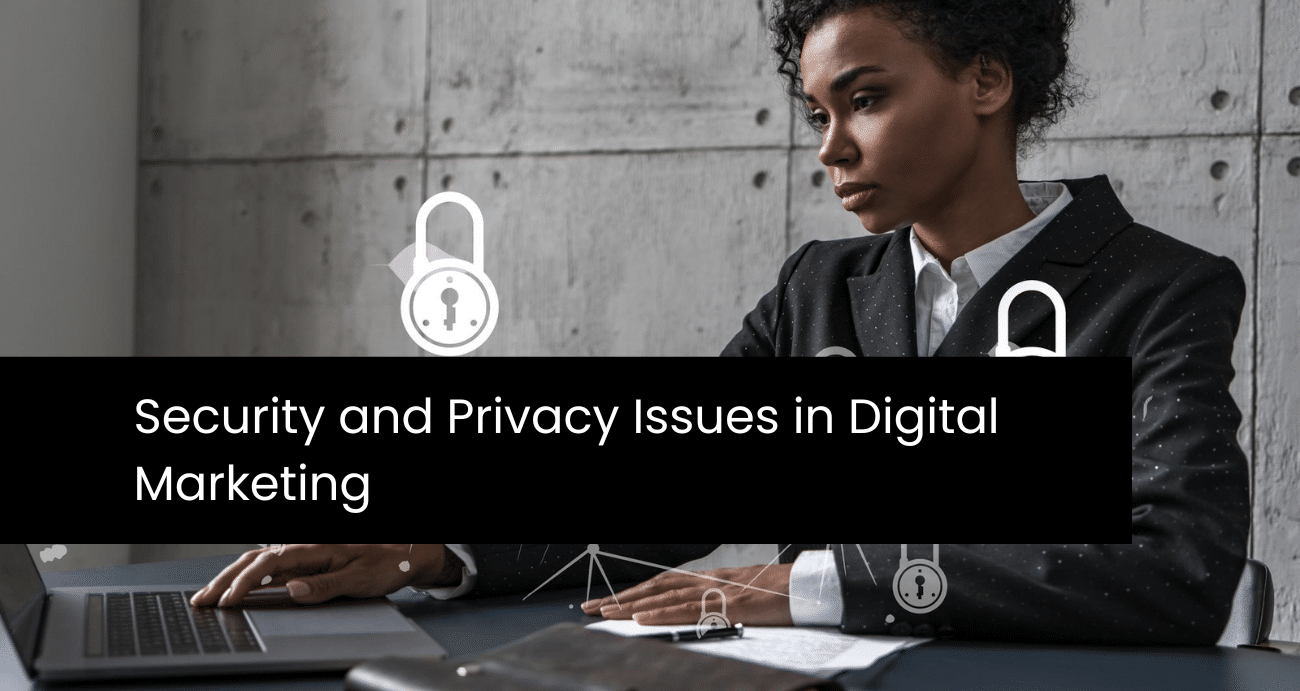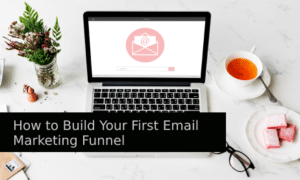Data is the driving force behind a lot of decisions in marketing campaigns. Still, as marketers are collecting more sensitive information, new cybersecurity concerns arise. One mistake can lead to data breaches with costly consequences.
A lot is at stake — but you’re not powerless.
We’ll cover all the pressing security and privacy issues in digital marketing and explain how you can protect your assets. Additionally, we’ll provide a wider context on data privacy for marketers and why it’s vital in today’s threat landscape. Ready?
What is privacy in digital marketing?
In short, data privacy refers to regulations and practices concerning the collection and use of customer information. That includes:
- Demographic data — such as gender, age, marital status, income, level of education, and other factors
- Customer contact details — your clients’ phone numbers, email addresses, and mailing addresses
- IP information — your audience’s unique Internet Protocol addresses
- Website analytics — useful indicators such as the bounce rate, general website traffic, and time spent on page
- Propensity data — details about consumer behavior, like what they like to buy and their preferred brands.
As you can see, it’s all info that’s routinely used in marketing plans and strategies. It’s essential for building a long-lasting relationship with your consumer base. It also benefits your customers, because their shopping experience is more personalized and unique.
However, customers are now more aware than ever about data collection. And given some of the recent incidents and controversies, they’re rightfully worried. Their data can be logged without their consent, or even sold to third parties.
A whopping 79% of Americans are concerned about companies collecting their info. Additionally, more than half say they understand little or nothing about what organizations do with it.

Why is data privacy important for marketers?
Digital marketing and privacy are closely connected. It’s becoming increasingly difficult to strike a balance between complete compliance and analytics. Still, data-driven marketers must find a way to gain insight into their consumers’ habits while respecting their privacy.
So, you’ll definitely want to inspire confidence in your customers and show them their information is in good hands!
Shady privacy policies, tracking tactics, and data breaches can destroy your brand image and reputation. Not to mention, they can result in financial and legal sanctions.
Here’s an example:
We all know how useful browser cookies are, right? They remember session information, user credentials and preferences, and other details like shopping carts. However, Verizon’s controversial “supercookie” took things even further.
Unlike normal cookies which only work on one website, Verizon’s version followed users on every unencrypted site. And to make matters worse, subscribers had no way to opt out of the tracking.
The supercookies have been quietly active since 2012, but Verizon didn’t publicize them until 2014. Even then, subscribers weren’t allowed to opt out until 2015. FCC eventually fined the company $1.35 million and forced it to limit the tracking only to Verizon services.
This situation was eye-opening for many netizens. It heightened scrutiny concerning cookies and similar trackers.
Data privacy regulations
Generally speaking, data privacy laws protect the confidentiality and integrity of personal information. They control how it’s collected, processed, and stored and ensure that only authorized parties may access it.
One of the most important data privacy laws is the European Union’s General Data Protection Regulation (GDPR). It was launched in 2016, replacing the previous Data Protection Directive.
The GDPR covers the main principles of data protection in Article 5, such as:
- Lawfulness, fairness, and transparency — Companies need to gain the informed and unambiguous consent of their data subjects.
- Purpose limitation — Data must be collected for specified, explicit, and legitimate purposes.
- Data minimization — Data usage has to be adequate, relevant, and limited to what is necessary.
- Accuracy — Personal information should be accurate and kept up to date.
- Storage limitation — Information may be kept only as long as necessary for the purpose of processing.
- Integrity and confidentiality — Data should be protected against unauthorized or unlawful processing and accidental loss, destruction, or damage.
Still, GDPR is only one regulation that applies to companies operating in the EU. There are many other national ones, as well.
The US doesn’t have a national law. Instead, it has numerous state laws and legislations. Some are more comprehensive than others! For example, California, Utah, Connecticut, Virginia, and Colorado have detailed legislation in place.
On the federal level, HIPAA and the Privacy Act of 1974 contain relevant sections that cover privacy.
All things considered, compliance is a delicate act and one misstep can be costly.

What are the threats in digital marketing?
Digital marketing departments have become one of the prime targets of cybercriminals.
Here’s why:
They have access to extensive and in-depth information about customers. And that data is valuable. It can be sold or used to commit fraud and identity theft. Attackers will resort to any measure to get their hands on it.
Here are some of the most common privacy and security concerns in digital marketing:
Data breaches
Data breaches are probably the most infamous and destructive example of cybersecurity threats in digital marketing.
In a nutshell, they happen when unauthorized individuals gain access to sensitive information. That includes contact information, marketing strategy details, and financial data.
They’re also an expensive mistake for companies. Zero-day attacks – unknown or unaddressed security vulnerabilities in software or applications. Prevention is the best form of protection against zero-day attacks.
According to IBM, the average cost of a data breach is $4.35 million. The US is leading with the highest cost at $9.44 million.
Usually, they happen due to:
- Insider threats — Employees may deliberately share company secrets and assets with competitors.
- Hacking — Cybercriminals can infiltrate an organization’s private systems and illegally obtain information.
- Malware — Hackers rely on malware that can track and record keystrokes, and even modify and destroy data.
- Employee mistakes — Workers could accidentally disclose info to outsiders or rivals.
- Physical theft — Important data could also be stolen from laptops, computers, smartphones, and USB drives.
Phishing attacks
Phishing is one of the most prevalent forms of social engineering. Using this cunning tactic, cybercriminals impersonate legitimate services and try to trick their victims into sharing sensitive information. They may also pose as trusted individuals.
When targeting companies, attackers mostly focus on specific individuals using spear phishing. Sometimes even high-ranking officials fall for these schemes. In mitigating the risks of phishing attacks, incorporating tokenization best practices adds an extra layer of protection to sensitive information, reducing the likelihood of unauthorized access.
Typically, scammers use carefully-crafted emails that look very convincing. They include the logo and style of the service they’re trying to impersonate. They also try to create a sense of urgency in the message, so it’s hard to ignore it.
But once you click on the phishing link, you’ll be redirected to a malicious website or download a harmful file.
Network snooping
With remote work becoming the norm during the COVID-19 crisis, online communication channels have become a favored target. Employees have to rely on them to internally exchange resources and information but also to contact clients.
Unfortunately, somebody could be listening in and monitoring your network traffic. They could obtain passwords, private data, and financial details. That’s why you should only use encrypted channels that will scramble your traffic and protect it from prying eyes. Additionally, you can use a VPN to secure your network. There are many benefits of a VPN when it comes to network security.
Compromised third-party apps
Marketers have to rely on a variety of tools for project management, customer relationship management, marketing analytics, and more. On top of that, they may use other messaging and file-sharing apps.
So, there’s a lot of space for potential security vulnerabilities.
Third-party tools are especially dangerous because they aren’t authorized by the company. Most companies also aren’t aware of the full extent of apps used by employees, which complicates cybersecurity strategies.
All software and applications should be regularly reviewed and updated to minimize risks.
Security tips for digital marketers
So, what can you do to ensure that your company avoids these dangers? Here are some simple security guidelines:
- Educate your team on the best cybersecurity practices and frequent privacy concerns in digital marketing.
- Use firewalls, private networks, and antivirus software when working on projects.
- Create strong passwords with a combination of upper and lower-case characters, numbers, and symbols.
- Be transparent about your privacy policy on your website.
- Ask for permission to use cookies.
- Make sure your web visitors know how to opt out of cookies and similar trackers.
- Encrypt your data when possible with a VPN, especially on public Wi-Fi networks.
- Enable remote wipe features to erase information on stolen devices.
- Prepare for a breach with an incident response plan.
- Employ an access control model to limit customer data on a need-to-know basis.
- Only use project management tools with robust security measures.
- Use a password manager to remember all the combinations for you.
- Never reuse passwords, as that can possibly compromise multiple accounts and services.
- Enable multi-factor authentication when possible.
- Regularly back up your data.
- Make data protection a core value of your company to differentiate yourself from competitors.
Furthermore, you can switch to other, privacy-friendlier metrics to analyze the performance of your campaigns. You can track engagement, CPL (Cost Per Lead), and CPA (Cost Per Acquisition).
Final thoughts
Security and privacy issues in digital marketing aren’t just IT territory. All employees should be on the same page concerning data protection.
After all, most risks are caused by human factors. A lack of awareness and negligence among employees can be more devastating than the most skilful hackers.
Still, basic protective measures and a company culture that focuses on data privacy can go a long way.




